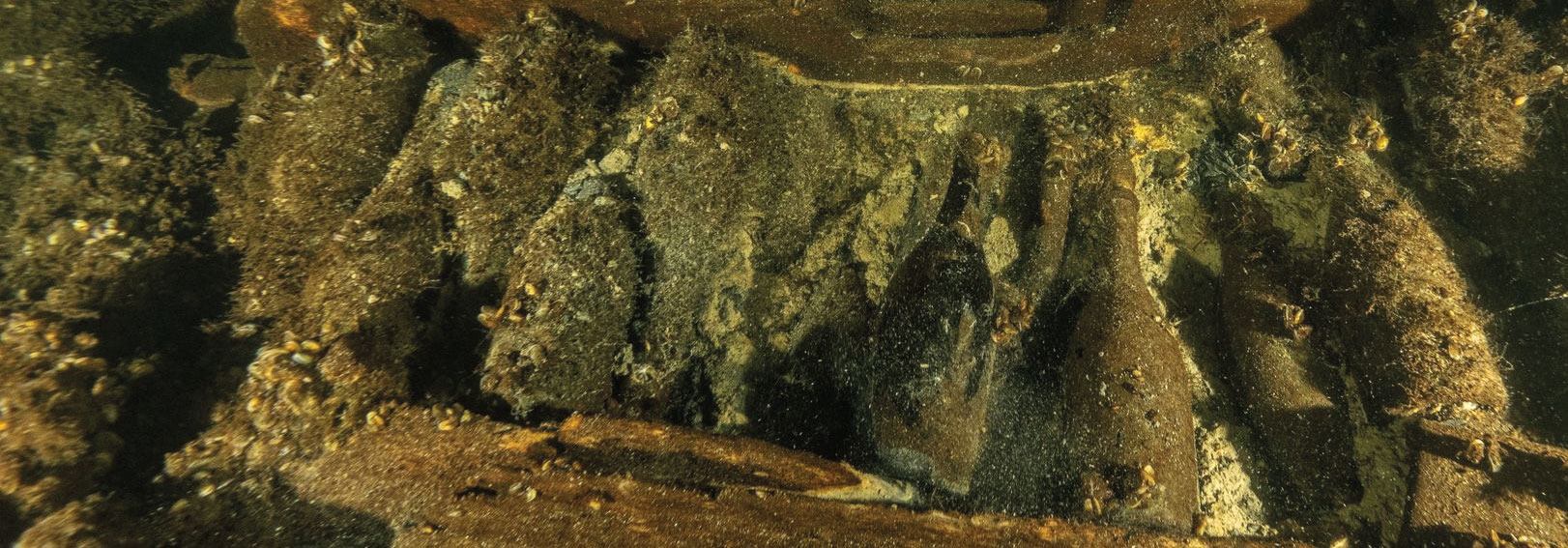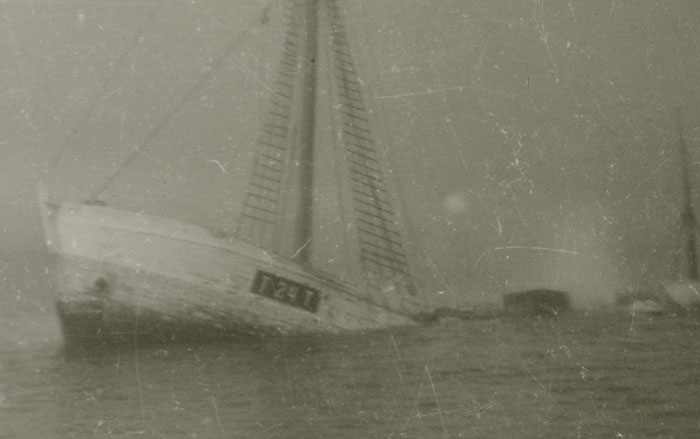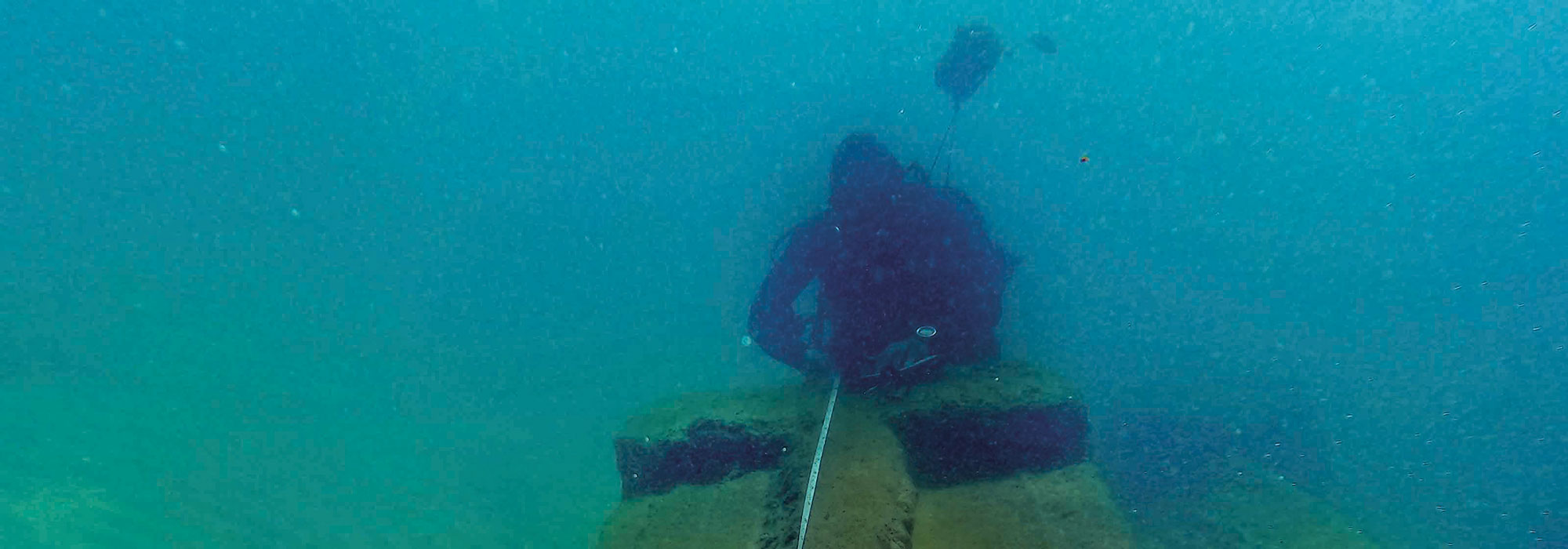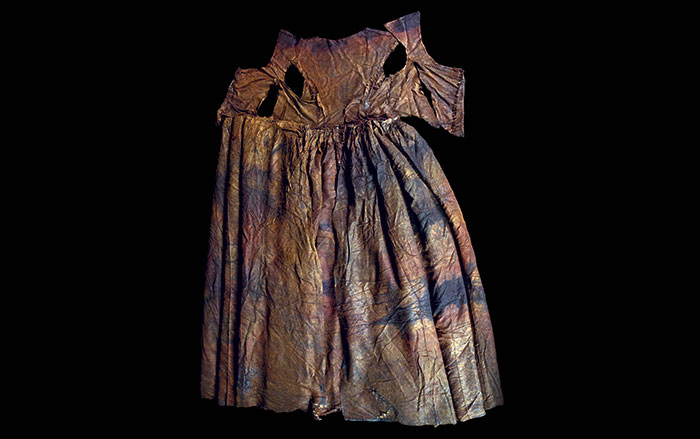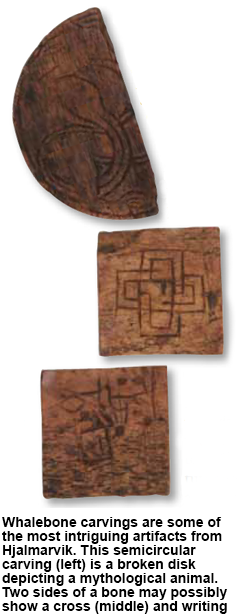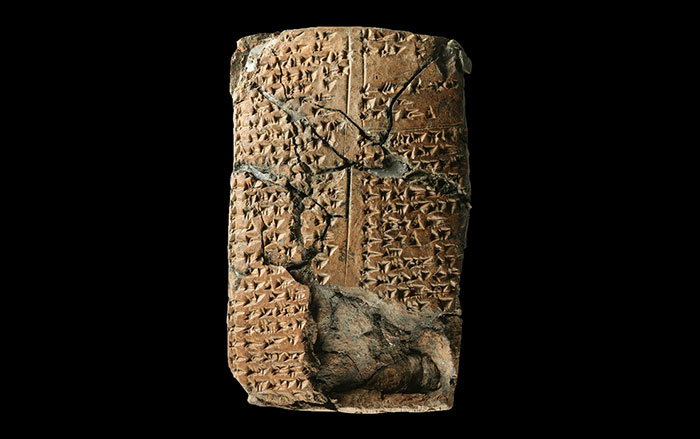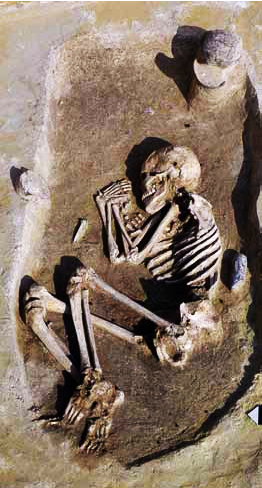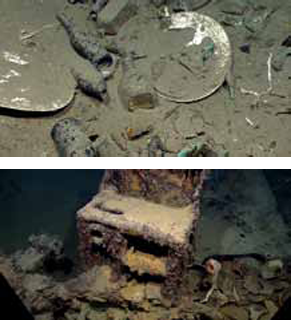
At the bottom of the Gulf of Mexico, 4,000 feet down, an expedition led by the National Oceanic and Atmospheric Administration in partnership with the Bureau of Ocean Energy Management (BOEM) and private companies, found a remarkable shipwreck thought to date to the early nineteenth century. The site was identified during a 2011 oil and gas sonar survey, but archaeologists didn’t know what they had until they visited it with remotely operated submersibles.The mission also employed some hefty technology—broad-band satellite communications let experts and team leaders consult on the exploration of the wreck in real time. “Most of us watched the operations from our living rooms,” says BOEM archaeologist Jack Irion. “Truly armchair archaeology at its finest.” Artifacts include the ship’s copper sheathing (which reveals the ship’s form despite the decomposition of its wooden hull), anchors, ceramics, glass bottles, navigational instruments, cannon, boxes of muskets, a rare ship’s stove, and even fabric. Work to identify the ship is ongoing, but it appears to date to between 1800 and 1840, a volatile time in the history of the Gulf of Mexico—a time that included the War of 1812, the Mexican War of Independence, revolutions in Texas and Yucatán, and rampant piracy and privateering.


